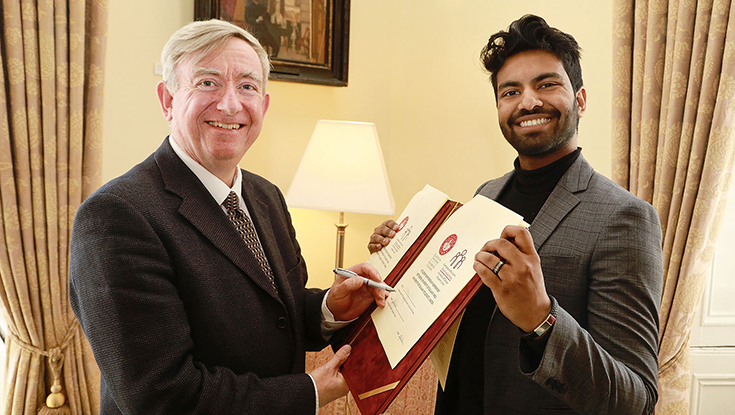Earlier this month, University of Galway and the University of Galway Students’ Union announced a formal partnership. According to the University, the aim of the agreement is for “staff and students to collaborate to deliver real and positive change in the areas of student-centred decision making and student participation and engagement.”
A fine sentiment.
However, it belies what has really happened to the union. A union that I have been a member of for all my six years at the university.
A union only in name
It has formalised what has been the case for many years now, in making the Students’ Union nothing more than a company union. A union that exists to act as the legitimised voice of students on campus, which will offer no pushback to a university that has, time and again, failed to protect or support its students.
This was a decision taken with no consultation with the ostensible members of the union, the student body, rather being decided at an executive level by the university and full-time union officials.
Fundamentally, this undermines the union’s right to call itself a union. A union is, first and foremost, independent from the interests of employers, and controlled by its membership.
Despite the protests and assurances of the union’s president, Sai Gujulla, this decision is a further nail in the coffin of the potential of what was once one of Ireland’s most radical students’ unions. The Connolly Youth Movement itself found some of its staunchest supporters outside of Dublin on that western campus on its foundation some 50 years ago.
And this union has attempted radical action in recent years. Protests around the university’s attempts to increase rent in student accommodation by 4 per cent in 2020 caused the university to back down. It would be no surprise that this agreement is an attempt to nip any sort of action like that in the bud in future.
A long slow decline
That is not to say however, that this decline is the fault of the current leadership. Rather, the decision to partner with the university is a logical progression of the defanging of the union that has been occurring for years. A major step in this was the privatisation of the union’s services – the cafés, shop, and bar – over a decade ago. The descent into neoliberalism is nothing new.
This development is a microcosm of the broader trend in the Irish trade union movement since the introduction of social partnership. In the new relationship, it is the university that holds the reins, make no mistake. In much the same way as social partnership ensures the dominance of IBEC, hand-in-hand with government, this decision ensures that the union will be making no moves that might upset the university establishment in the future.

